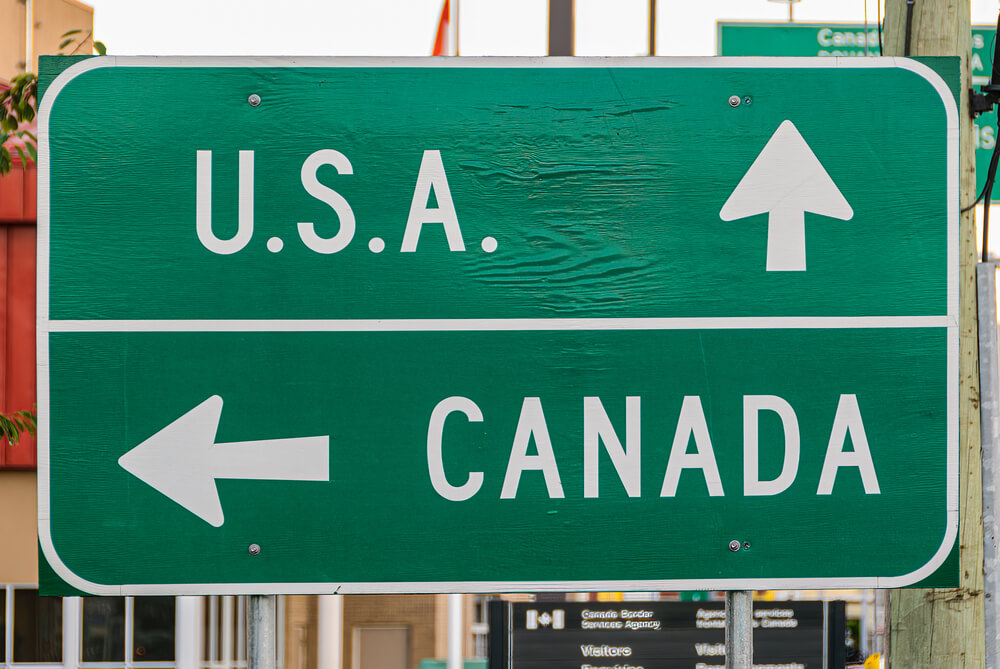Let’s stop poking allies in the eye. Provoking conflicts with friends and disrespecting leaders of close allies like Canada is no way to conduct foreign policy.
President Trump has put territorial expansion on the agenda. He has declared that the U.S. wants to buy Greenland. He has threatened to take back the Panama Canal, by force if necessary, and he has said Canada should become the 51st state. Such statements make us seem no different from Russia, with its invasion of Ukraine, or China with its constant threats of military action against Taiwan. And they undercut our efforts to prevent these regimes from seizing neighboring territory.
Bullying Canada won’t work in the long run
Our new president is employing a favorite tactic he uses in business—bullying— by referring to Prime Minister Trudeau as Gov. Trudeau and joking about making Canada the 51st state. Recent polling in Canada shows 86 percent of Canadians are concerned about U.S. threats, and half say Canada should not allow the U.S. to bully it.
President Trump has linked the threat of tariffs on Canadian and Mexican goods to demands for stemming the flow of migrants and illegal drugs into the U.S. at the southern and northern borders. But Canada last year already began strengthening it border presence. While the president has not made specific demands of Canada, what he likely wants is to improve the terms of the U.S.-Mexico-Canada free trade agreement concluded during his first term.
Now, Prime Minister Trudeau plans to resign, and his party may lose the upcoming election largely over domestic issues. Trump’s bullying made Trudeau look weak and likely contributed to his decision to resign.
Public bullying ensures foreign leaders either dig in or just ignore us hoping that in four years we elect a more reasonable administration.
Important security interests in the Arctic.
The Arctic is growing strategically more important as the ice melts and access to resources becomes feasible, and we should oppose any outside nation seeking to dominate the region. But Greenland is an autonomous, dependent territory of Denmark, a NATO ally, and the Danes aren’t going to sell it to us, as they made clear when Trump raised this silly idea during his first term.
Greenland and its 200-mile exclusive economic zone are already protected by a NATO member and any serious attempt by China or Russia to attack Denmark’s sovereign interests in Greenland would trigger Article Five of the NATO Treaty.
The U.S. already helps defend Greenland
The 1951 Defense of Greenland Agreement as amended in 2004 makes the U.S., in partnership with Denmark, jointly responsible for the defense of Greenland, allows the U.S. to operate the Pituffik Space Base, formerly Thule Air Base, and provides a way to proceed with Denmark and NATO to secure our mutual interests in the Arctic as necessary.
While Greenland is recognized as a dependent territory of Denmark with self-government and its own parliament, the U.S. is already guaranteed certain security rights given its strategic value to the U.S.
Trump should stop talking about buying Greenland and go talk with the Danes and the Greenlanders–in private not on social media. They would be more than happy to cooperate with us on ways to improve Greenland’s security that make sense. And since China is increasing investment in ice breakers, the U.S. should buy more icebreakers for our Coast Guard, which currently has only two operational polar icebreakers.
China does not run the Panama Canal
President Trump asserts China is operating the canal, that Panama is charging U.S. shippers unfair rates and that Panama has broken the treaties that passed ownership of the canal to Panama. While a Hong Kong based consortium won a bid in 1997 that allows Chinese companies to operate in ports at both ends of the canal, China doesn’t operate the canal. What’s more, U.S.- and Taiwan-based companies also operate in ports along the canal.
In addition, there is no evidence that U.S. shippers are being charged rates different from other shippers in the same categories and using the same routes.
President Carter negotiated a peaceful turnover of the canal to Panama in 1977 in a package of treaties. A key treaty that has no expiration date ensures the neutrality of the canal, fair access to all parties to use the canal with nondiscriminatory tolls and clear understanding that only Panama can operate the canal or have military installations in Panama.
The Panama Canal Authority (ACP), a semi-independent government agency, runs the canal. Because the larger cargo and tanker ships could not transit the smaller, American-built canal, ACP constructed a larger “New Panama Canal” lock system that opened up new transport routes in 2016 between Asia and the Atlantic, benefiting U.S. Gulf Coast liquid natural gas terminals and East Coast container ports.
Panama was the first country in Latin America to join China’s Belt and Road Initiative, a program intended to extend China’s global economic and political presence by financing major infrastructure projects in underdeveloped countries. Since the canal is also important to China’s foreign trade, China helped fund the new, deeper canal channels. In response to White House concerns about China’s presence, Panama is terminating participation in the Belt and Road Initiative.
Trump’s current focus on the Panama Canal is likely related to broader concerns about China’s economic penetration of the Western Hemisphere, where China is helping nations improve basic infrastructure via this same Belt and Road Initiative.
China’s main interest is to provide markets for Chinese products. The reason China is able to make inroads in the Western Hemisphere is because the U.S. has ignored economic problems in these hemispheric nations, which also fuels our immigration problems. The answer is not to bash Panama because it is getting infrastructure funding from China, but to focus on helping nations in our own hemisphere.
In the conduct of foreign policy, it is much better to send an emissary to discuss U.S. security concerns in private. Bullying smaller nations publicly, even if it gets results in the short term, leaves a pool of resentment that can emerge to frustrate future policy goals.







